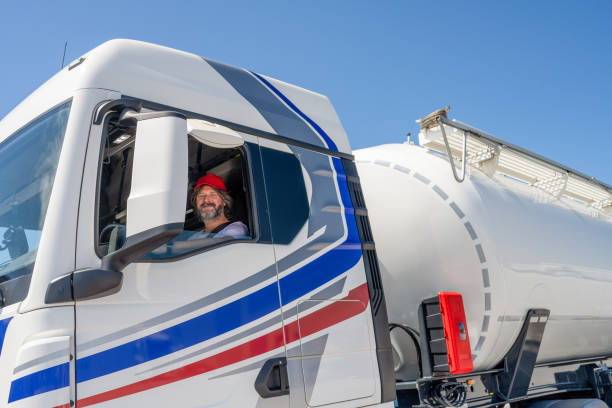Keeping the Wheels Turning: Smart Fixes for the Driver Shortage

Across the propane industry, one issue continues to demand attention: a growing shortage of qualified bobtail drivers. As demand for propane stays steady and, in some regions, even rises, companies are finding it increasingly difficult to maintain reliable delivery schedules. The reasons are many – an aging workforce, fewer people entering skilled trades, and tough working conditions. To stay ahead, propane businesses are looking beyond quick fixes and turning to creative, long-term solutions.
Raising the Bar on Compensation
Wages for drivers in the propane sector often trail behind what other commercial drivers can earn in long-haul or construction-related industries. Add to that the physical demands of bobtail deliveries, and it’s no surprise that younger workers may be reluctant to join the field.
Some propane companies are rethinking their compensation models. This includes:
• Hourly rate increases
• Seasonal bonuses during peak winter months
• Referral incentives for bringing in new drivers
• Full benefits packages, including health insurance and retirement plans
A well-structured pay and benefits package not only attracts new talent but also signals that the company values its team – something that goes a long way in reducing turnover.
Creating Career Paths from Within
Hiring from outside is challenging when the labor pool is limited. That’s why some companies are turning inward. By identifying motivated warehouse workers, service technicians, or dispatchers who are already familiar with propane operations, businesses can offer training toward a CDL (commercial driver’s license) and hazmat certification.
Apprenticeship-style programs not only build driver capacity; they also strengthen company culture. When employees see a clear path for career advancement, they’re more likely to stay and invest in their roles.
Widening the Talent Pool
Historically, the propane industry has relied on a narrow segment of the workforce. But many companies are now broadening their outreach to include:
• Women, who are significantly underrepresented in trucking
• Military veterans, who often bring discipline and driving experience
• International workers, through legal work visa programs like EB-3, which allow U.S. companies to sponsor skilled drivers from other countries
These efforts are not just about filling roles; they’re about building a more resilient and diverse workforce.
Letting Technology Do the Heavy Lifting
Technology can’t replace drivers, but it can reduce how many are needed to get the job done efficiently. Smart tools are now available to support propane companies such as:
• Tank monitors that trigger deliveries only when needed
• Route optimization software that reduces driving time and fuel use
• Mobile apps that eliminate paperwork and help drivers manage schedules
These invaluable resources not only lighten the load for drivers – they also lower operating costs and improve customer service.
Offering Better Work-Life Balance
Long days and unpredictable routes are among the top reasons drivers leave the industry. In response, many propane businesses are experimenting with:
• Split shifts to reduce burnout
• More local delivery routes that ensure drivers return home each night
• Flexible scheduling to accommodate personal obligations
Especially for younger generations entering the workforce, work-life balance is no longer a bonus; it’s an expectation.
Building a Compelling Workplace
Retaining drivers requires more than just good pay. Respect, recognition, and a strong workplace culture go a long way. Some small gestures can make a big impact:
• Providing modern, well-maintained equipment
• Offering driver appreciation days
• Giving out small performance-based perks, like fuel cards or gift baskets
• Creating open lines of communication between drivers and management
When employees feel seen and supported, they’re more likely to establish a long-term career in the propane industry.
Looking Ahead
The bobtail driver shortage isn’t going away anytime soon. But propane companies aren’t powerless. By combining practical strategies – like internal training and better pay – with long-term investments in technology and expanded hiring practices, the industry can start building a stronger foundation for the future. Solving this workforce issue will take commitment, but the payoff is clear: dependable deliveries, more satisfied customers, and a propane business that’s built to last.














